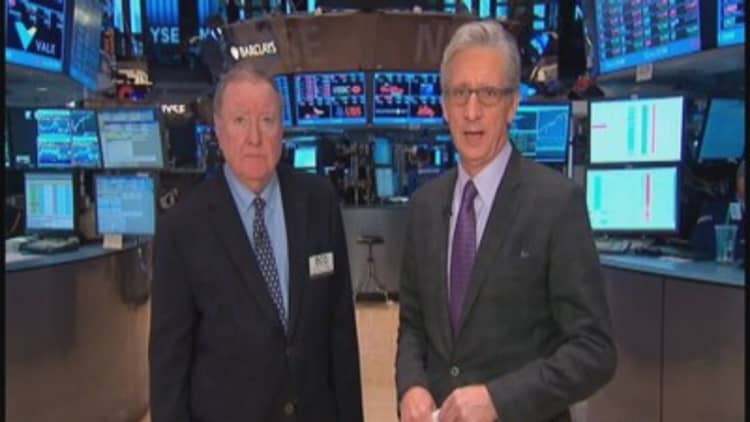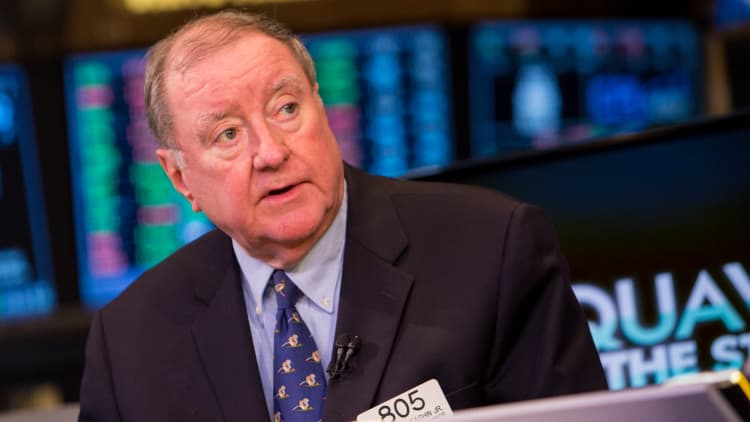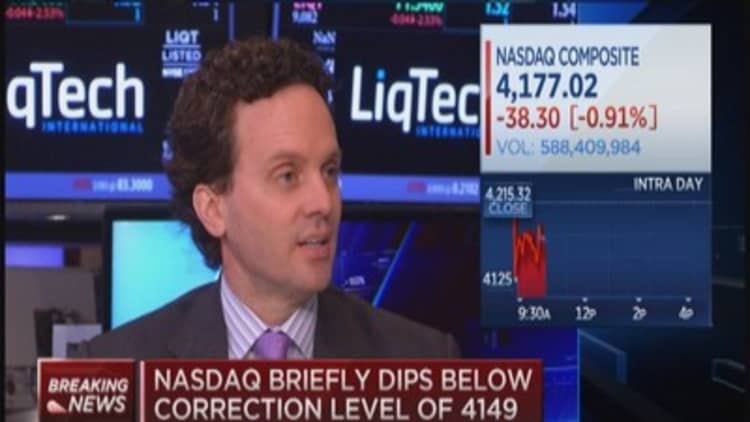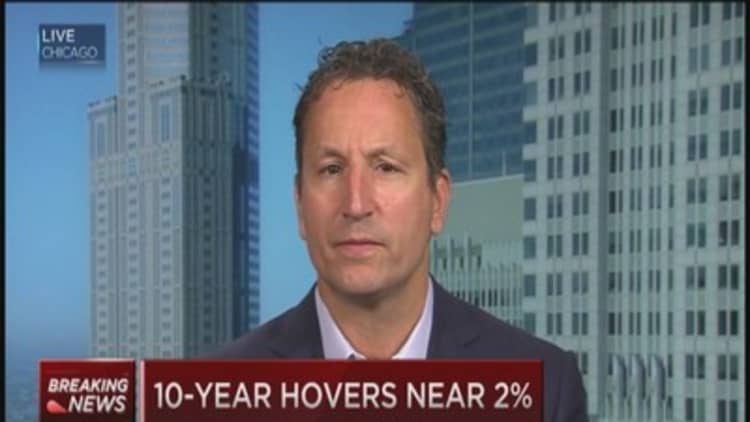



U.S. stocks ended little changed on Thursday, with the Dow industrials recouping much of a 206-point deficit, as investors balanced worries about global growth against mostly better-than-expected U.S. earnings and economic reports.
"The market is not trading off of fundamental news, it is trading off worries, whether it's the importing of weak economic growth or Ebola," said Mark Luschini, chief investment strategist at Janney Montgomery Scott.
"Volatility has reared its ugly head again, but we had nothing for the better part of 16 to 18 months. When you have nothing and go to something, its seems magnified, it's much more pronounced," said Chip Cobb, portfolio manager at BMT Asset Management.
After jumping as high as 29.41, the CBOE Volatility Index, a measure of investor uncertainty was lately down 2.1 percent at 25.70.
"We do all have short-term memories and really have never gotten away from 2008 and 2009. Even though the market was up double digits last year, and started off well this year, there hasn't been a time in the last six years where people have had really strong convictions about this bull market," said Cobb.
Major U.S. Indexes
After a 206-point drop and 69-point gain, the Dow Jones Industrial Average dropped 24.50 points, or 0.2 percent, to 16,117.24, with the blue-chip index extending losses into a sixth session, its longest losing streak since August of 2013.
The added a fraction to 1,862.76, with energy and materials gaining the most and consumer staples and technology knocked the hardest among its 10 main industry groups.
After falling to a low of 4,131.65, pulling it down more than 10 percent from its recent bull-market intraday high, the Nasdaq added 2.07 points, or 0.1 percent, to 4,217.39.
For every share falling more than two gained on the New York Stock Exchange, where nearly 1.1 billion shares traded. Composite volume cleared 5 billion.
Apple fell after the supplier of consumer technology showed off its latest iPads and said it would launch a wireless payment system on Monday.
Upbeat data on the U.S. labor market did little to nothing to curb selling in the early going, with the same true of earnings from companies including Netflix and Goldman Sachs Group.
The government said its count of Americans filing claims for jobless benefits dropped to a 14-year low last week, to 264,000, its lowest since 2000.
Separately, U.S. industrial production rose 1.0 percent in September, versus expectations of 0.4 percent.
Less positive was a u-turn in confidence among home builders in October, falling sharply after rising to a nine-year high the prior month.
Stocks recovered much of their drop after St. Louis Federal Reserve Bank President James Bullard told Bloomberg News that the Federal Reserve should consider postponing the end of its bond purchase program to stop the drop in inflation expectations.
"He doesn't vote, so what he thinks doesn't mean anything," said Peter Boockvar, chief market analyst at the Lindsey Group, who called Bullard's comments "irresponsible and clueless."
"It goes to show you that the market is willing to bite on anything," offered Luschini.
The U.S. dollar turned lower against the currencies of major U.S. trading partners and the 10-year Treasury yield used to determine mortgage rates reversed course, up 2 basis points at 2.162 percent.
On the New York Mercantile Exchange, oil futures for November rose 92 cents, or 1.1 percent, to $82.70 a barrel, after dropping as low as $79.78 a barrel during the day. Gold futures for December delivery fell $3.60, or 0.3 percent, to $1,241.20 an ounce.
On Wednesday, U.S. stocks closed down but recovered significantly from historic intraday losses amid concerns about Europe, Ebola and the economy.

—By CNBC's Kate Gibson
Coming Up This Week:
Friday
Earnings: General Electric, Morgan Stanley
8:30 a.m.: Housing starts for September
9:55 a.m.: Consumer sentiment for October
More From CNBC.com:


